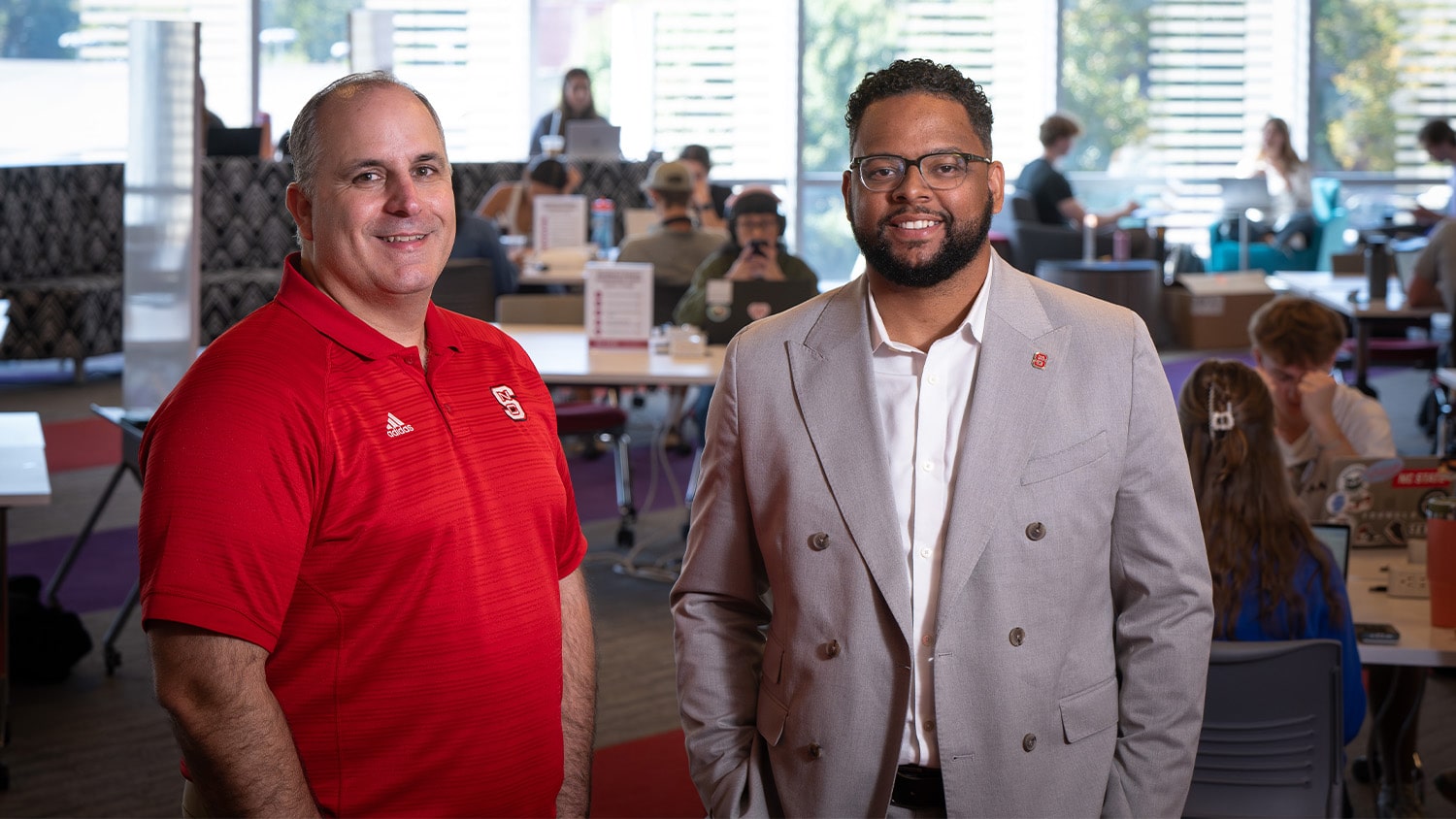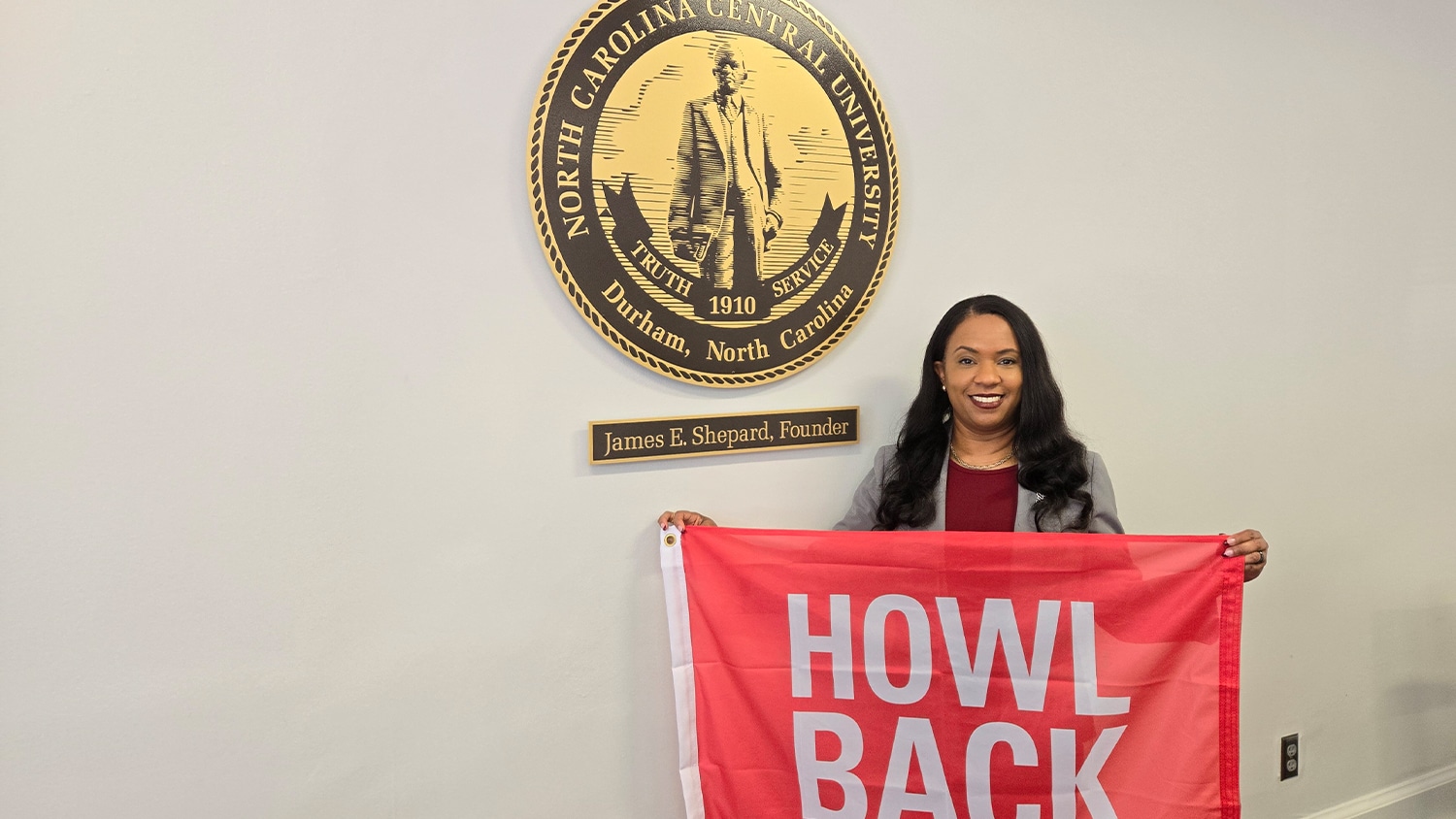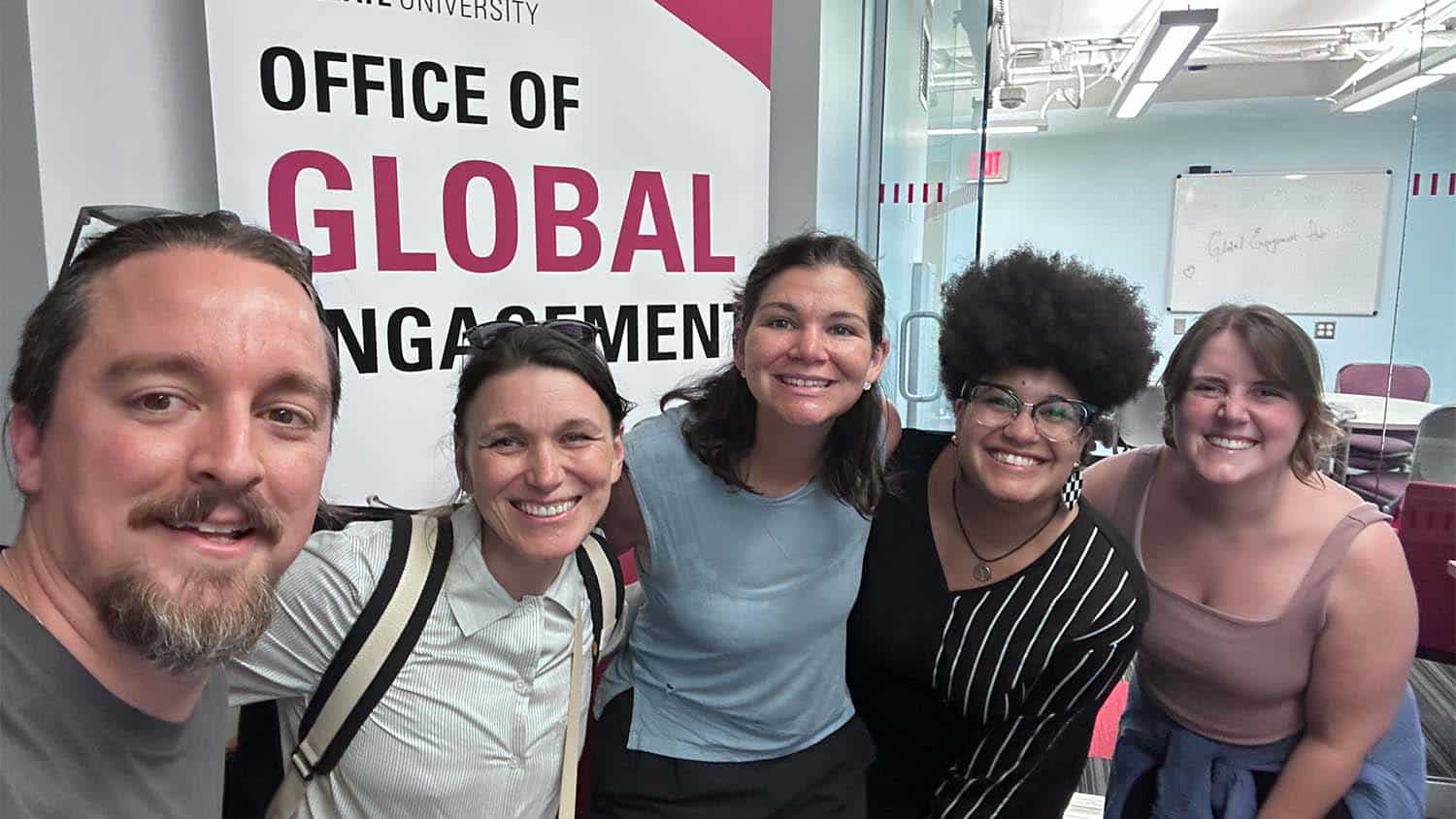Rhyme and Reason
Ayo Agunbiade’s songs explore one of life’s enduring paradoxes: humanity’s propensity for conflict and the heart’s capacity to heal. Follow the academic advisor's musical journey.
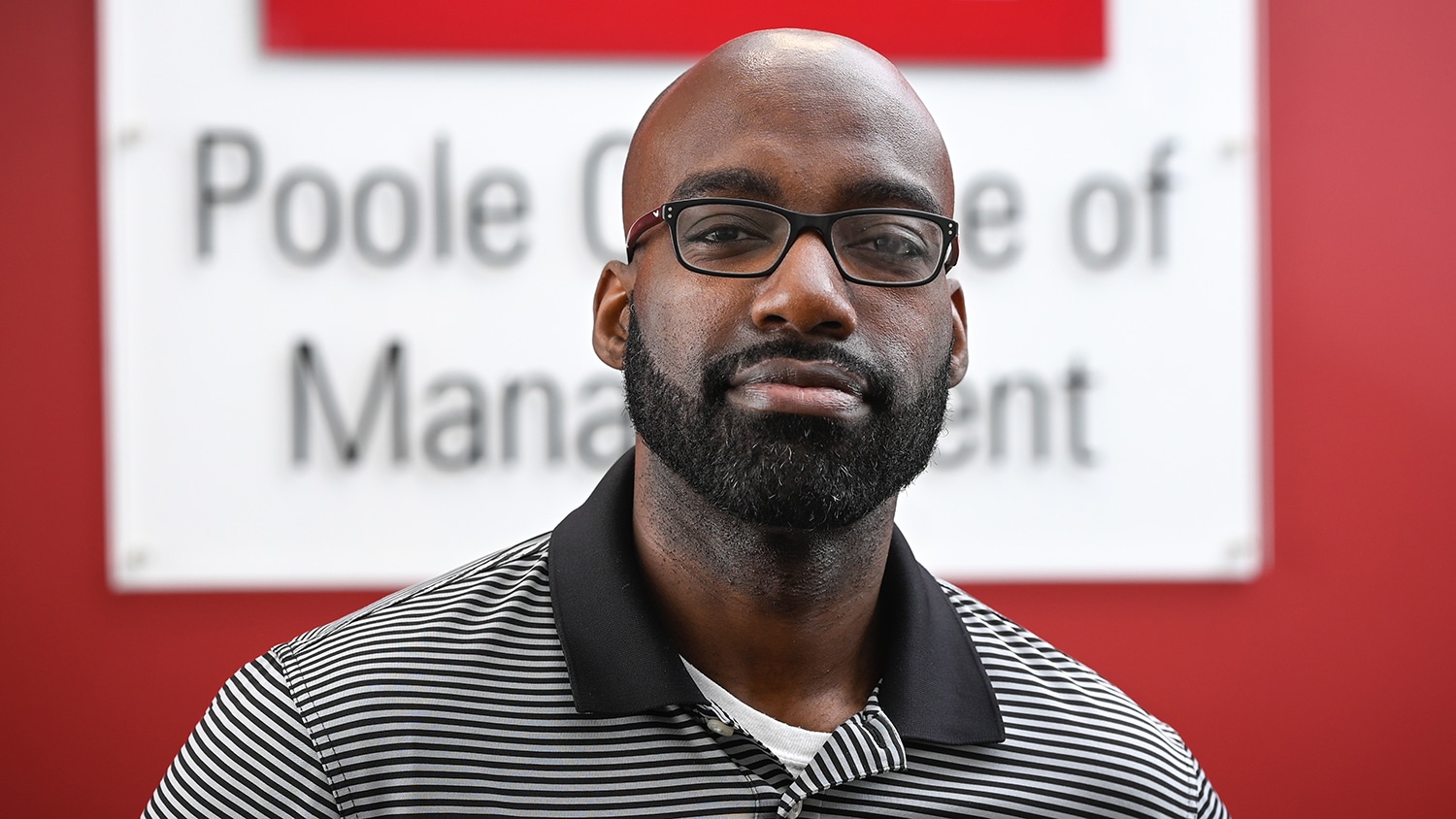
“All right. Here we go.”
The opening lines of Ayo Agunbiade’s song that speaks about — and to — his late mother, Teresa Ann Ward, capture the musician’s philosophy as he strives to impart meaning to life, loss and love. Although many of his songs pay tribute to an imperfect and sometimes painful past, Agunbiade’s eyes and heart are fixed in one direction: forward.
In a song titled “Up,” the hip-hop artist recounts a journey that has taken him from an impoverished childhood in Prince George’s County, Maryland, to academic and career achievements that once seemed out of reach:
I fell down sometimes and though it cost me
I couldn’t be the best me without the losses, see
All these lessons that I learned made me wise up
They taught me even when I’m down keep my eyes up
Today, as a senior academic advisor in the Poole College of Management, he’s helping NC State students chart their own paths in uncertain times.
“I’ve made a career out of working in higher education because of how much I value education and how transformational it has been in my life,” he says. “When I went to college, I recognized that I needed to be successful there if I didn’t want to go back home and sell drugs or pump gas, something like that.”
Success in the classroom didn’t come easy, but Agunbiade kept moving forward, earning a bachelor’s in communication and a master’s in education.
“Getting those degrees was the most gangster thing I’ve ever done in my life, because I didn’t have anyone ahead of me who took that path,” he says.
Your Words Against Theirs
His journey as a musician began in high school, where he participated in impromptu rap competitions.
“Pretty much every day at lunch we would have these freestyle battles, and it was the best part of the day,” he says. “Somebody starts to hit a beat on the table, and it’s you versus whoever has the boldness to step up. It’s you and your words against theirs, and the winner is the one who can come up with the cleverest lines and just keep the flow going.”
Music took a backseat to football in Agunbiade’s life for a while, but after high school he found his voice — and an outlet for his emotions — in composing, recording and often producing his own original songs. He’s released two albums, Destiny in 2017 and Destiny Reimagined in 2018, as well as a slew of singles available on streaming platforms such as Apple Music and Spotify. And he appeared on a 2020 album, Dean’s List, produced by a rap collective called the Great Minds Alliance.
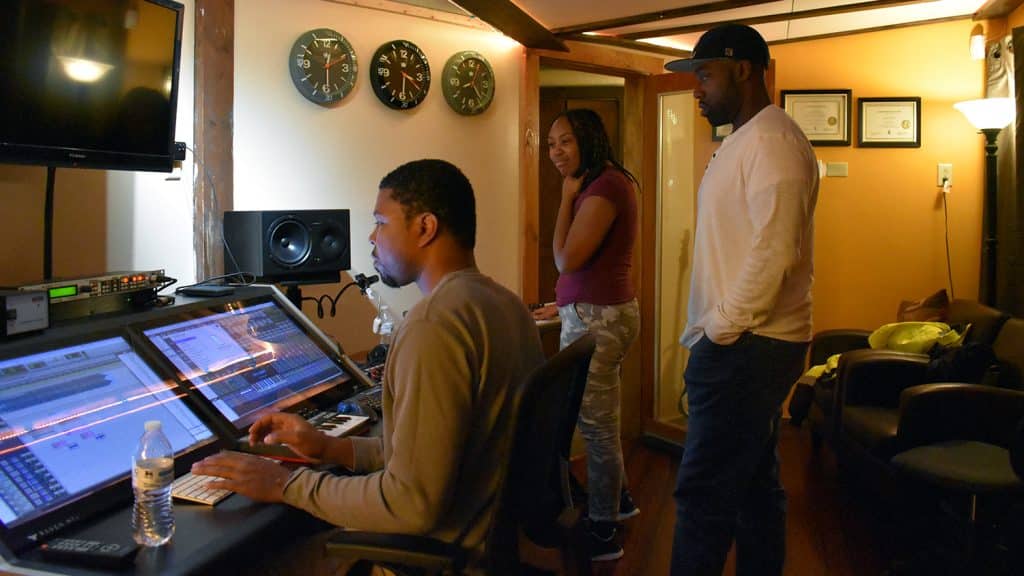
The name he writes and performs under — iYo the Philosopher — is a nod to his reputation for thinking deeply (or in the words of a friend, “overthinking”) about his life and the world around him.
“A lot of my music is autobiographical,” he says. “Through music, I’m able to process my own feelings and sometimes come out with something that I didn’t quite expect. Sometimes, something that was deep in my soul just kind of pours out. I can’t keep it all bottled up for so long.
“It’s more cost-effective than a therapist.”
Grief and Loss
His mother’s death in 2010 left Agunbiade struggling to cope with his grief and loss. It was, he says, a dark time.
“My mom was my best friend, and it took me a really long time to properly grieve,” he says. “One thing that helped me through is understanding that even though my mom is no longer here in the flesh, she lives through me. I cannot be me without the impact that she had on my life.”
In “Teresa Ann Ward,” a song celebrating her life, he marvels:
We never had a lot but it felt like plenty
How you raise a good kid in a mad city?
Worked all day, paid bills, made dinner
Even when I lost, had me feeling like a winner
The music video for the song, directed by Joey Gizzi, features the singer TreAlise, whose soulful vocals on the chorus float above Agunbiade’s somber rapping. The cinema verité work, shot handheld with available light in and around a desolate city park, was named best music video at the 2020 Longleaf Film Festival.
Agunbiade first teamed up with Gizzi in 2017, when the pair worked on a music video for the song “Riot,” an antiracist anthem inspired by the Black Lives Matter movement.
“There was a string of Black men getting killed on camera, and I had this song on one of my old mixtapes that dealt with that,” he says. “I put an ad on Craigslist looking for somebody to shoot the video, and Joey responded. He charged me basically nothing because he was just getting started.
“It turned out to be a really good video, but even more interesting is the fact that after that video, Joey’s skill and his talent just sort of skyrocketed.”
Since then the pair have worked together on several other video projects — and won more awards. It’s a rewarding collaboration that seems to come easily to both. “I’ll have an idea and I’ll share it with Joey, and he’ll just take it to the next level,” Agunbiade says.
His focus on racism and other social issues in his music reflects his struggle to make sense of the times.
“I’m a little lost in terms of where we are as a society,” he says. “It doesn’t even feel real; it feels like a dream that maybe one day we’ll wake up from. But there’s so much going on, and the tensions are so deep. I don’t ever remember a political moment in my lifetime that was so polarized.
“People can’t hear each other anymore.”
Visible Man
It’s one of the reasons Agunbiade values his work at NC State, where he’s part of a small percentage of Black men in leadership roles. Working as an academic advisor gives him an opportunity to counter racial stereotypes and support the school’s efforts to promote a welcoming environment for everyone.
“Most of my students don’t look like me,” he says. “And some have told me that it’s their first time interacting with a Black man in a position of authority. So I get to introduce them to someone who is supportive, reliable, accountable — all these good things, but with a different skin color.”
For Black students, Agunbiade’s visibility sends a positive message.
“I appreciate that the students who do look like me have someone who actually looks like them on the staff,” he says. “Because there aren’t a whole lot of us in the college or across the university.”
Counseling the Whole Person
Not all of Agunbiade’s music deals with weighty issues or unresolved emotions. “Butterfly,” a catchy 2021 single, is a sweet and sometimes spicy ode to his wife, Rachel. The couple met working together in the Academic Support Program for Student-Athletes.
Girl, you’re so fly like a butterfly
I couldn’t let you fly to another guy
All up in the sky you be so high
You got the right mind and you’re so fine
“My life philosophy that there’s joy to be found, and we have to find it,” he says. “No matter what we’re going through, we have to work our way back to it.”
